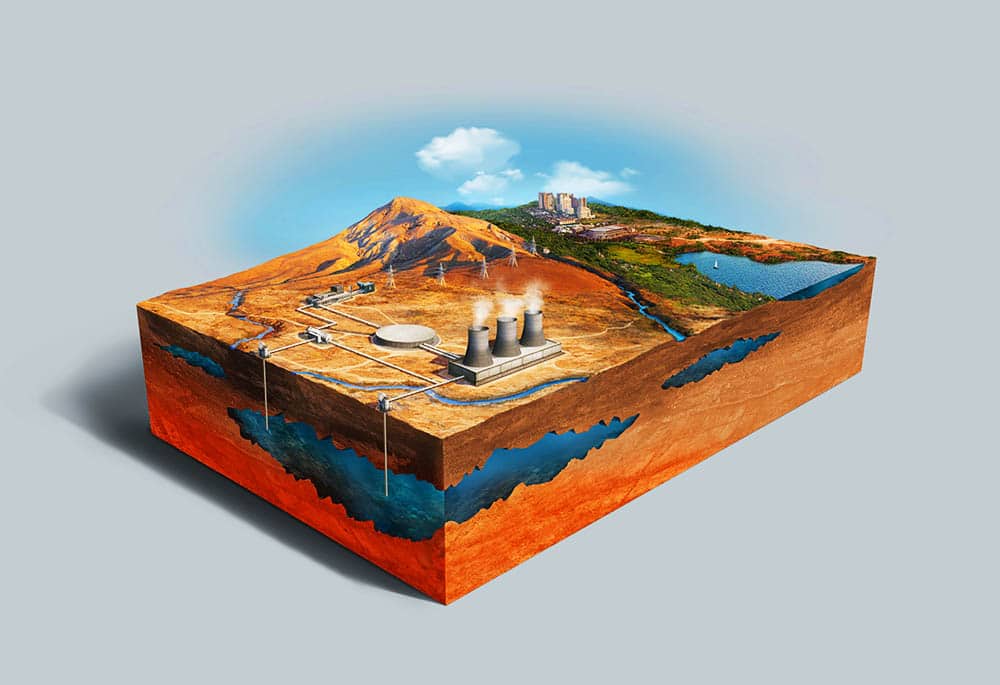Nuclear energy has been a topic of debate for many years, and the discussion has only intensified in recent times due to growing concerns about climate change and the need for cleaner energy sources. While some still view nuclear energy as an unsafe and risky technology, there is growing evidence that it could actually be the key to a sustainable future.
The Risks and Misconceptions of Nuclear Energy
One of the main reasons that nuclear energy remains a controversial topic is due to the perceived risks of nuclear accidents. The devastating meltdown at the Chernobyl nuclear plant in 1986 and the Fukushima disaster in Japan in 2011 are two tragic examples of the potential risks of nuclear energy. However, it’s important to note that these accidents were caused by outdated technology and poor safety measures, rather than inherent flaws in nuclear energy itself.
In fact, nuclear energy is much safer than many people realize. According to a report from the International Atomic Energy Agency (IAEA), nuclear energy has one of the lowest fatality rates of any major energy source, including coal, gas, and oil. The report also notes that improvements in technology and safety measures have significantly reduced the risk of accidents, with modern nuclear reactors being designed to withstand even the most extreme natural disasters.
Another common misconception about nuclear energy is that it produces vast amounts of radioactive waste that pose a serious threat to public health and the environment. While it’s true that nuclear reactors do produce waste, the amount is relatively small compared to other forms of energy. And thanks to ongoing advances in technology, there are now many safe and effective ways to manage and dispose of nuclear waste.
The Benefits of Nuclear Energy
So if nuclear energy isn’t as risky or dangerous as some believe, what makes it such an attractive option for a sustainable future? There are several key benefits to consider:
1. Low carbon emissions
One of the biggest advantages of nuclear energy is its ability to generate electricity with virtually no carbon emissions. Unlike fossil fuels, which release pollutants into the atmosphere and contribute to global warming, nuclear energy is a clean and efficient source of power. In fact, according to the Nuclear Energy Institute, nuclear power plants in the US alone helped to avoid 564 million metric tons of carbon dioxide emissions in 2018, the equivalent of taking 118 million cars off the road.
2. Reliable and efficient
Nuclear energy is also incredibly reliable and efficient, with many reactors capable of operating for 18-24 months without needing to be shut down for maintenance. This means that nuclear power plants can provide a constant and stable source of energy, unlike solar or wind power, which are subject to fluctuations in weather patterns.
3. Scalable
Nuclear energy is also highly scalable, with the ability to generate large amounts of power to meet the growing energy demands of a rapidly expanding global population. With the right investment in technology and infrastructure, nuclear energy could become one of the primary sources of power for a sustainable future.
The Challenges of Nuclear Energy
While there are many benefits to nuclear energy, it’s important to acknowledge that there are also some significant challenges to overcome. These include:
1. High upfront costs
Building a nuclear power plant is an expensive undertaking, with estimated costs ranging from $5-20 billion depending on the size and location of the plant. This can make it difficult for smaller or developing countries to invest in nuclear energy, and may also discourage private sector investment.
2. Public perception
As we’ve seen, nuclear energy is still viewed by many as a dangerous and risky technology. Overcoming these perceptions and building public trust in nuclear energy will be a significant challenge, particularly in the wake of high-profile accidents like Chernobyl and Fukushima.
3. Nuclear proliferation
Another challenge of nuclear energy is the risk of nuclear proliferation, or the spread of nuclear weapons technology. While nuclear power plants themselves are not the same as nuclear weapons, the two technologies do share some similarities, and there is always the risk that nuclear material could be diverted for military use.
A Sustainable Future Requires Nuclear Energy
Despite these challenges, there is growing consensus among experts that nuclear energy is essential to a sustainable future. In a report published by the Intergovernmental Panel on Climate Change (IPCC) in 2018, the authors noted that «nuclear energy can play a significant role in reducing greenhouse gas emissions» and called for the rapid expansion of nuclear energy to limit the worst impacts of climate change.
To achieve this, governments and the private sector must work together to invest in modern, safe, and efficient nuclear energy technology. This includes developing new reactor designs that are more cost-effective and efficient, as well as enhancing safety measures to prevent accidents and mitigate the impact of any incidents that do occur.
In addition, public perception of nuclear energy must be addressed through education and outreach programs, helping to build trust and understanding of the benefits and risks of this technology. Finally, global cooperation is needed to address the challenge of nuclear proliferation and to prevent nuclear weapons technology from falling into the wrong hands.
Conclusion
In conclusion, nuclear energy is not without its challenges, but the benefits of this technology are too great to ignore. From its ability to generate clean, reliable, and scalable power to its potential to help mitigate the worst impacts of climate change, nuclear energy could be the key to a sustainable future. By investing in modern technology, enhancing safety measures, and building public trust, we can create a world where nuclear energy plays a crucial role in meeting our energy needs while protecting our planet for future generations.
- borrame-noticias - abril 25, 2024
- borrame-animales - abril 25, 2024
- borrame-viaje y turismo - abril 25, 2024

